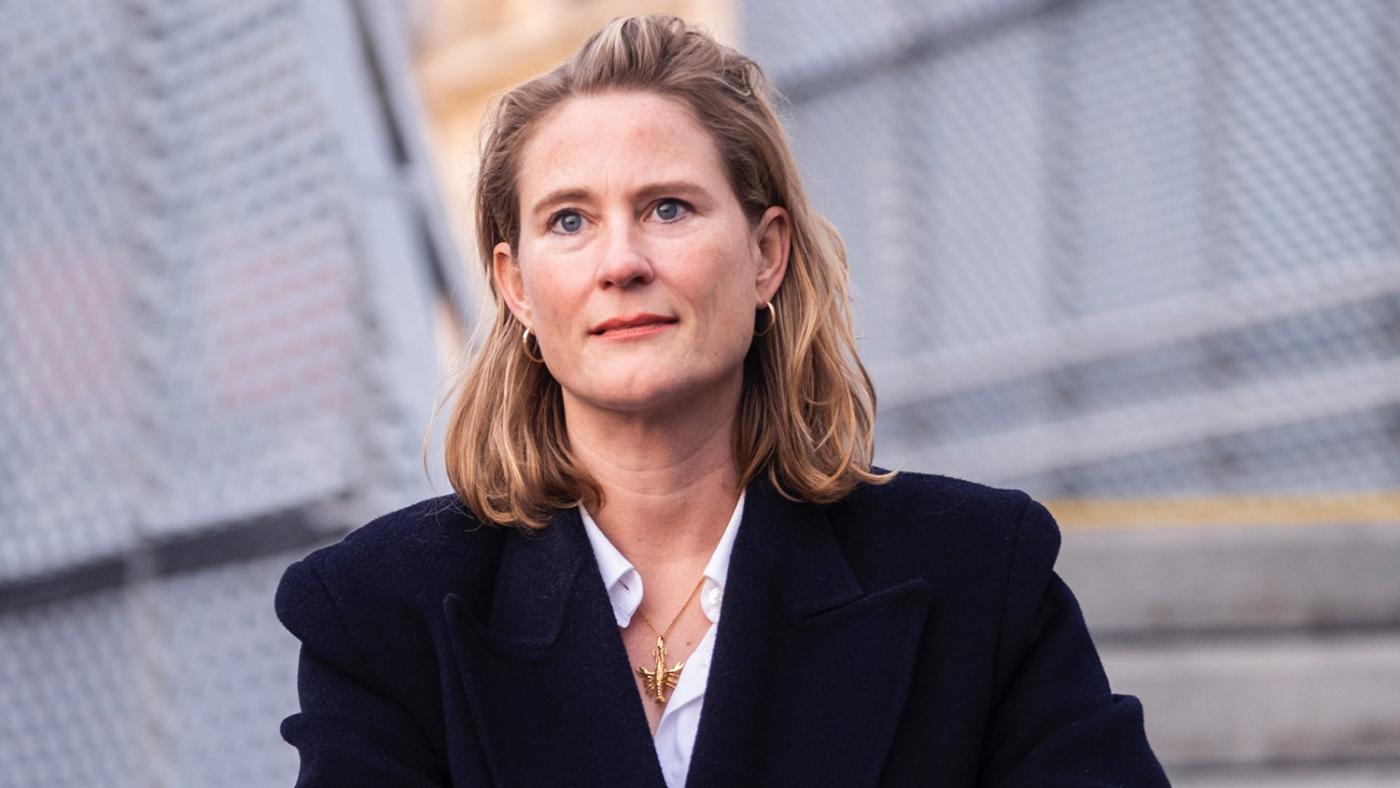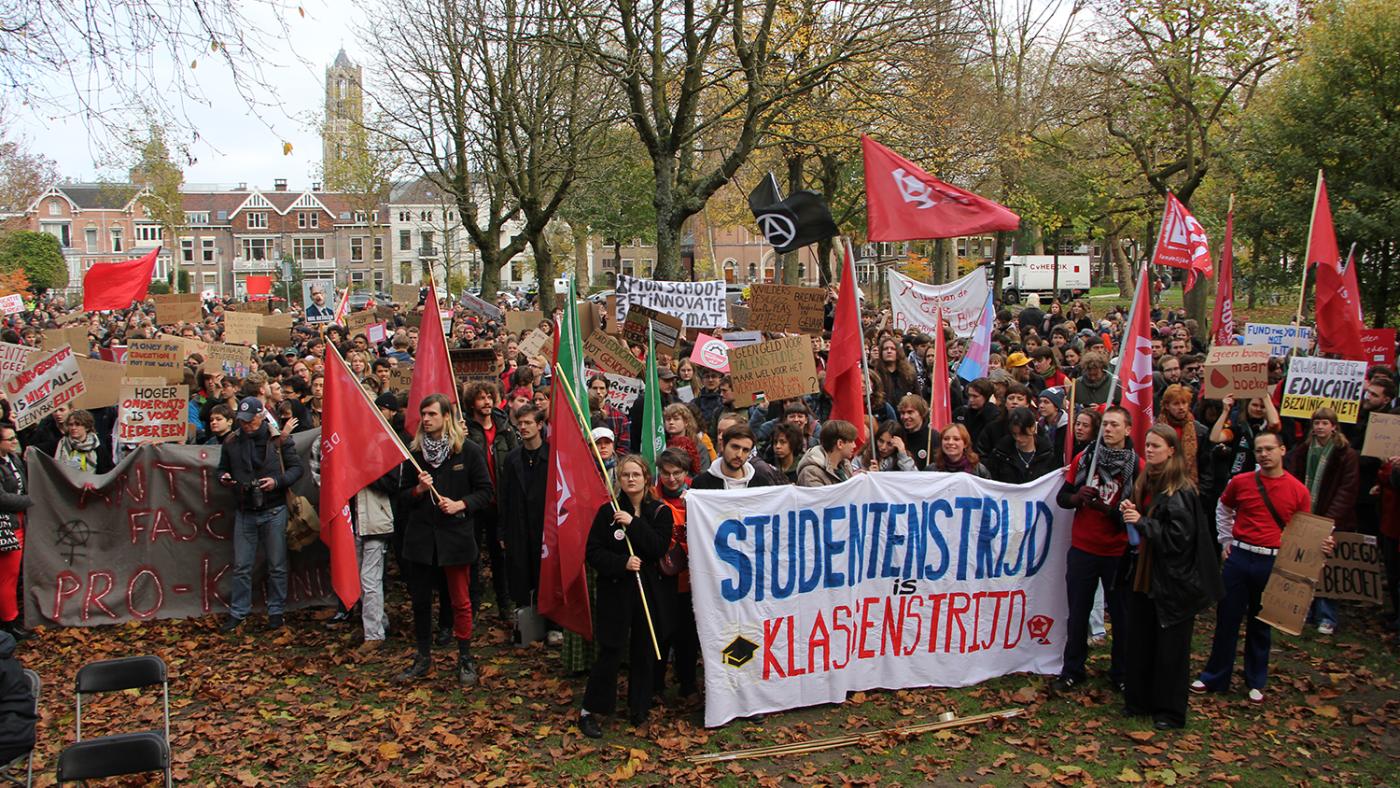UU professor Annelien de Dijn, from the protest movement WOinActie:
'Cancelled protest shows the right to demonstrate is under pressure'

The demonstration against the austerity measures against higher education had been organised for months. It was supposed to be the largest protest from the education sector in decades. Disappointment and disillusionment abounded the day before the demonstration, November 13, when Utrecht Mayor Sharon Dijksma announced that the protest could not proceed because pro-Palestine activists were allegedly planning to hijack the demonstration. According to the mayor, they did not discard the use of violence to make their point.
The organisers, education trade unions FNV and AOb, were forced to cancel the protest. However, student unions did not accept the cancellation and called on students to come to Utrecht and protest anyway. As a result, thousands of students demonstrated in the city centre of Utrecht on Thursday, November 14. It was a peaceful demonstration. Another protest has been scheduled for Monday, November 15, at Malieveld in The Hague.
As an activist for the action group WOinActie, Annelien de Dijn, Professor of Modern Political History at UU, is closely involved in the demonstrations against the austerity measures. How does she evaluate the events described above? Does she think the organisers will manage to mobilise the university community once again to protest in The Hague?
What are your feelings about the cancelled demonstration?
“If you look purely at what happened, you can say that things were strange. First, the municipality, the police and the Public Prosecution Office (the Dutch call this security trio "the triangle", Ed.) told the unions that a group of outsiders were planning to hijack the protest and use violence. The triangle advised the unions against going ahead with the demonstration and warned them that, if they did it anyway, the municipality would ban the protest.
However, student unions stuck to their guns and protested anyway. But their demonstration was not banned after all. To a certain extent, there are understandable reasons for this. I can imagine that the students' protest was a lot smaller than the one that was supposed to happen, which may have made it safer after all. However, this does give people the impression that the triangle was panicking and I cannot shake the impression that recent events in Amsterdam influenced their behaviour.”

Students demonstrate in Utrecht on November 14. Photo: DUB
Should we be worried about that?
“Certainly, because the right to demonstrate is an essential part of a well-functioning democracy. Citizens have the right to make their voices heard in public spaces if they disagree with government policy. This should not be restricted at will.
The cancellation of the protest fits into the bigger picture, which is the right to demonstrate being under pressure in the Netherlands. In The Hague, some politicians want to restrict the right to demonstrate through legislation and regulations. In addition to these threats, mayors are too quick to restrict demonstrations on improper grounds, as evidenced by a report by Amnesty International.
“Demonstrations should not be restricted simply because they are annoying or disrupt public order. Such arguments have been used often lately. I acknowledge that this has to do with the undercapacity of the police. The police turn up to deal with hooligans at all football matches, but when citizens want to exercise their democratic right, they are overburdened.”

Photo: Ivar Pel
The demonstration went ahead after all. What do you think about that?
“I am very happy that students persevered and demonstrated anyway. I think it is great that students dared to go, although I also understand the people who did not dare to do it. Nobody wants to end up in a riot.
We are very happy that we are getting a second chance to protest and that the demonstration is now going ahead in The Hague, the place where the decision will ultimately be made. As far as I'm concerned, the protest will have been a success if the austerity measures, which are disastrous for the entire country, are reversed.”
Is there enough momentum for a second demonstration? Are people still motivated to go?
“I think that the willingness to protest has only increased because the original protest was cancelled. It all happened so strangely that many people started talking about the whole issue. There has been even more commotion. This has made the university community aware of the importance of making its voice heard and using its right to demonstrate.”